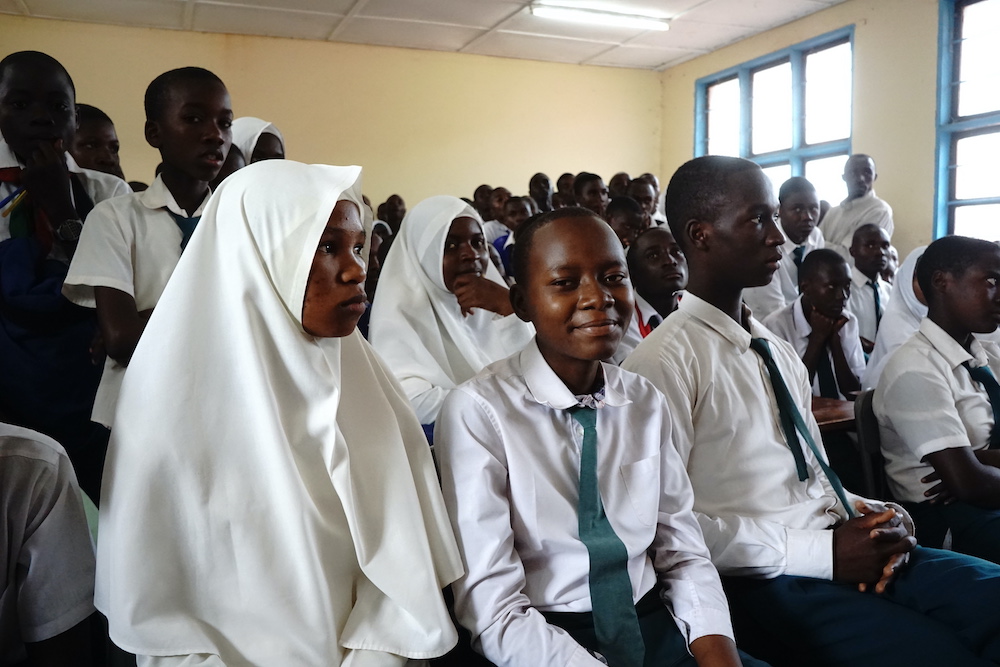
Pop-Up Class Tanzania
Supplemental learning for under-performing children
Pop-Up Class Tanzania is an after-school digital learning program where children learn on personalized game-based learning software called onecourse and Kitkit School.
Nyarugusu refugee camp in Tanzania is the third largest refugee camp in the world and currently home to 136,000 refugees. Children in Nyarugusu have access to an IRC-operated school system that delivers Congolese and Burundian national curriculums. However, education in the refugee camps is chronically under-resourced resulting in overburdened teachers, large class sizes, few teaching and learning materials, and the inability to provide targeted support to children who have fallen behind. As a result Nyarugusu Camp primary schools currently experience a 50% drop-out rate for children in grades 1-3 (IRC, 2019). Similarly, Tanzania government schools in the host community surrounding the camp face crowded classrooms and few teaching and learning materials. Without targeted support, children are at risk of falling behind and dropping out of school at high rates.
Resourcing to date has not enabled the establishment of consistent, targeted interventions to support under-performing children and prevent dropout.
How it Works
The IRC, in partnership with Imagine Worldwide, is piloting Pop-Up Class, a center-based digital education program that puts personalized game-based learning software in the hands of children who need it the most, enabling them to gain foundational numeracy and literacy skills. The goal of Pop-Up Class is to allow children to direct their own learning, learning autonomously and with minimal supervision, navigating the software based on their own skill level and understanding of the academic content.
Building on the home-based Pop-Up Learning pilot in Bangladesh, Pop-Up Class will be delivered through tablets using localized learning software onecourse and Kitkit School. During Pop-Up class, young women from the community will provide basic facilitation support, maintain technology and keep children accountable and engaged. Spaces in community centers and schools will provide a safe and quiet place for children to gather and learn. Solar charging will ensure the tablets work when the child goes to use it and allow learning to continue even where basic infrastructure is not available. Further, intermittent connectivity using wifi, while not required for learning on the software, will allow remote tracking of children’s learning progress.
During implementation of the program, the IRC, Imagine Worldwide, and Innovations for Poverty Action will conduct pilot studies followed by mixed-methods experimental studies to determine the efficacy and cost-effectiveness of the program.
Project Timeline
Design Sprint begins
The Airbel Impact Lab kicks off a 4-week Design Sprint to design, test, and adapt program components and staff support assets before the launch of the pilot in February, 2021.
Project Set-up phase begins
Finalize research plans Draft and test evaluation tools Procure hardware and solar charging set-up Receive government and IRB permissions Engage schools and communities where the program will take place